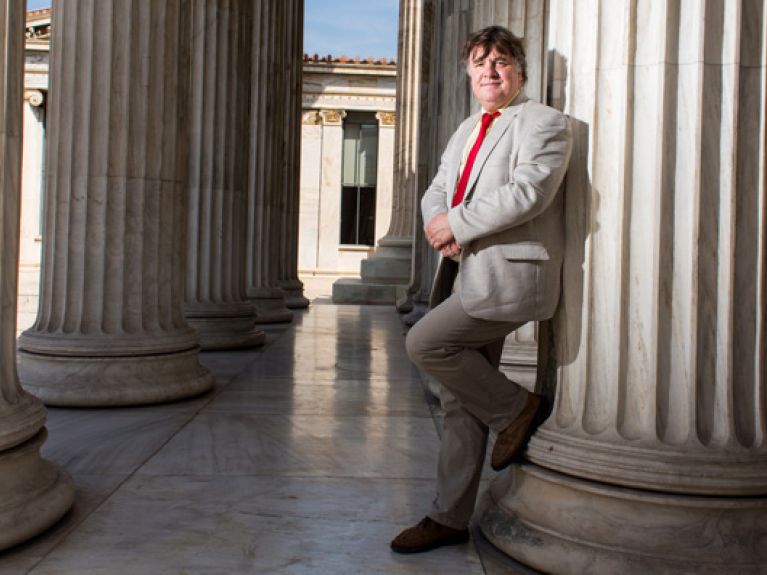“Enthusiasm for Europe has to be rekindled in each generation”
Matthias Makowski, Director of the Goethe-Institut in Athens, draws cultural lines of communication.

Mr. Makowski, is Europe facing not only a financial crisis, but also a crisis of cultural identity? Shouldn’t the time have now come for culture, the time for a big idea?
I do not hope for the big idea that will rescue Europe from its supposed identity crisis. Europe is many small building blocks. One year ago, the President of the Goethe-Institut, Klaus-Dieter Lehmann, described it like this: “Europe is neither a melting pot nor a salad bowl, but a mosaic.” The crisis certainly has something to do with the fact that we take Europe too much for granted, when enthusiasm for Europe has to be rekindled in each generation. I do not believe, however, that one big idea will bring success, I have more faith in encounters and dialogue between equals in the course of practical cooperation.
What is actually the unifying element in European culture – if we leave aside the historical lines of communication for once?
The unifying element in European culture today lies precisely in these lines of communication – and to that extent the question cannot be answered. Paradoxically, although Europe is a continent of many languages, it is possible to find something like a common European language in cultural forms of expression. A Finnish feature film or a Greek drama seem closer than a work from Uruguay or Vietnam.
High unemployment and a lack of prospects. What can culture achieve in a climate like this?
It is precisely at times of crisis that people take notice of cultural offerings – for very different reasons. Culture helps to provide orientation and clarify questions, and sometimes it offers the chance to forget everyday life – that is a great deal.
Héctor Abad, the Colombian writer, is afraid Europe has lost the enthusiasm of its early years. He believes that this contains the danger of populists leading the EU back to nationalistic nightmares. Is that a typical view “from outside”?
I don’t see Europe from outside; in Athens I’m right in the middle of it. But the danger of renationalization is real.
How do you perceive the mood in your host country Greece? And how are you responding to this in your programme?
The situation in Greece has deteriorated rapidly in recent years. Also and especially for the so-called “free scenes”, with which Goethe-Institut has been working for years. We are continuing this work. At the moment, however, one question concerns many Greeks: stay or go? We at Goethe-Institut are making this question one of our themes – in our programming, but also in practice in educational cooperation when we are supporting the beginnings of a dual vocational training system in Greece. And, naturally, some Greeks use our study courses. Although there have been claims they exist, we don’t have waiting lists.
There is frequent talk about anti-German resentment in Greek society. How is your institute responding to that?
You have to see anti-German resentment in a differentiated way in Greece. My impression is that critical attitudes towards Europe are quickly projected at Germany, which is understandable in the light of our common history. We don’t explicitly respond to that. But it has always been our responsibility to present a realistic view of Germany. Sixty years of successful cooperation in Athens help you to be seen as credible.
DR. MATTHIAS MAKOWSKI is Director of the Goethe-Institut in Athens and Regional Director. Before coming to the Greek capital, the German studies specialist worked in Prague and as Head of Department at the headquarters of the Goethe-Institut in Munich. www.goethe.de

